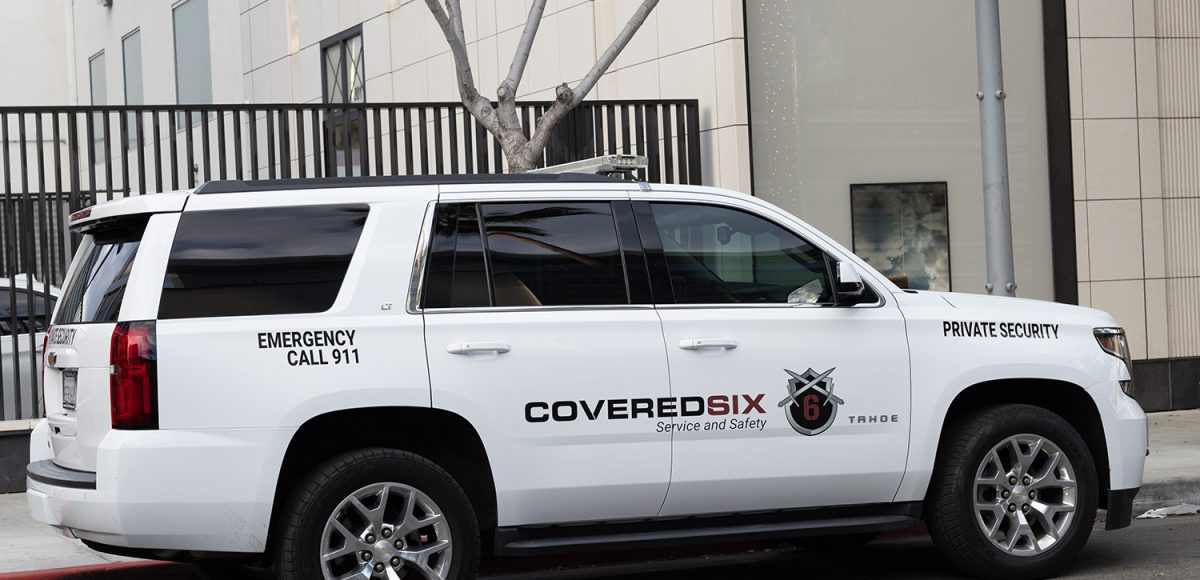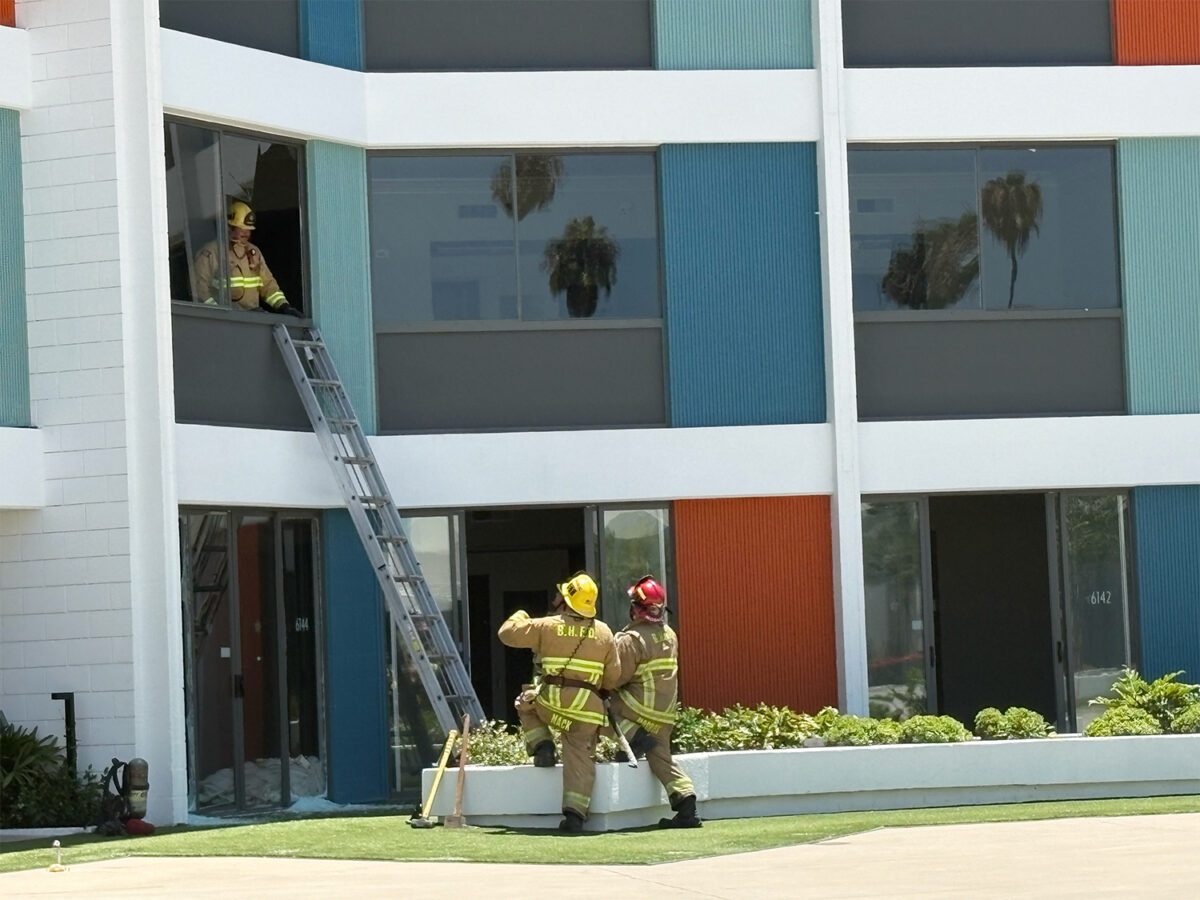At its Feb. 8 Regular Meeting, the Beverly Hills City Council voted for the largest extension of private armed security since the city began contracting with security firms in 2020. The Council also approved a bike lane for San Vicente Boulevard and passed an ordinance enabling construction of a new robotic parking facility for an office building in the Business Triangle. Lastly, the Council addressed irregularities in energy billing for some residents in January.
Beverly Hills first contracted with the security firms Covered 6 and Nastec International in October of 2020 in anticipation of unrest around the Nov. 3 general election. The total for both contracts came out to around $1.4 million.
For this latest contract extension (the fourth thus far), the city justified the ongoing need for private security by pointing to the frequent animal rights protests in the Business Triangle, smash-and-grab burglaries in Southern California, a rise in violent crime, and anti-masking protests.
The amended contracts push the departure date for Covered 6 and Nastec until June 30, 2023. The city also added a provision requirement that Covered 6 and Nastec employees working in Beverly Hills receive the COVID-19 vaccine and undergo regular testing. The total of the two contracts represents the largest sum allotted to private security by the city at any one time: $817,041 for Nastec and $1,719,180 for Covered 6.
This brings the total spent on private security by the city since 2020 to over $7.3 million.
Beverly Hills Chief of Police Mark Stainbook gave the Council a thorough public accounting of the city’s year and a half-long relationship with private armed security.
Deployment of the services peaked around the 2020 General Election with 40 officers on the street each day. More recently, during November and December, the city saw as many as 28 officers a day, but the omicron surge in coronavirus infections has seen that number shrink to as low as 17.
The contract amendment approved by the Council will cover 23 officers a day, Stainbrook said.
Unlike police officers, private security officers are limited in how they can interface with the public and when they can intervene in situations. Private security can assist with medical calls, traffic control, and perimeter security, but will limit physical intervention to situations when someone presents a risk to “someone’s safety, life, or great bodily injury,” Stainbrook said.
“Otherwise, they’ll observe and report and let us know where and when crime is happening,” he said.
Stainbrook also presented the most recent crime statistics covering January, telling the Council that the city appeared to be “trending in the right direction.” Overall crime declined from December to January by 12% and crime was down 14% from last January. While grand theft numbers went up, reflecting a rise in shoplifting from downtown businesses, BHPD saw other crimes fall, including one less robbery, seven fewer aggravated assaults (from eight in December to one in January), and nine fewer residential burglaries (from 16 in December to seven in January).
In another vote, the City Council unanimously approved the installation of a bike lane on southbound San Vicente Boulevard from north of Clifton Way to north of Wilshire Boulevard. The addition will not decrease car lanes or on-street parking; rather, it will shrink the existing lanes from 12-feet to 10-feet, creating a 6-foot bike lane. The city will begin to mail notices to properties within 500 feet of San Vicente with the final design and construction timeline.
The Council also gave the green light to a proposed office building project in the Business Triangle, passing an ordinance that would allow the development to have a robotic parking garage, or alternative parking facility (APF). The garage, which would be located at 317 North Beverly Drive, would rely on a carousel-like system of storing cars. The facility is authorized under a 2016 pilot program, with another one approved for the Chanel development at 400-408 North Rodeo Drive.
Under the ordinance, the Council modified the pilot program to allow the facility to be constructed above-grade and to serve businesses other than luxury services.
Lastly, Councilmember Julian Gold sought to clear up an issue with the electricity bill of certain city residents, some of whom saw higher than average bills in January. Gold explained that power bills are made up of two charges, one for energy and another for transmission. In December, the city’s power delivery provider, Southern California Edison (SCE), neglected to charge about 15% of customers for the energy they used, and instead only charged them for transmission. While these customers likely saw a smaller bill in December, Gold said, the omitted charges found their way back in the January bill.
“For those who looked at their January bill with a little bit of sticker shock, that’s the reason that it happened. It really was a correction of an error that Edison had made on the December bills,” he said.







